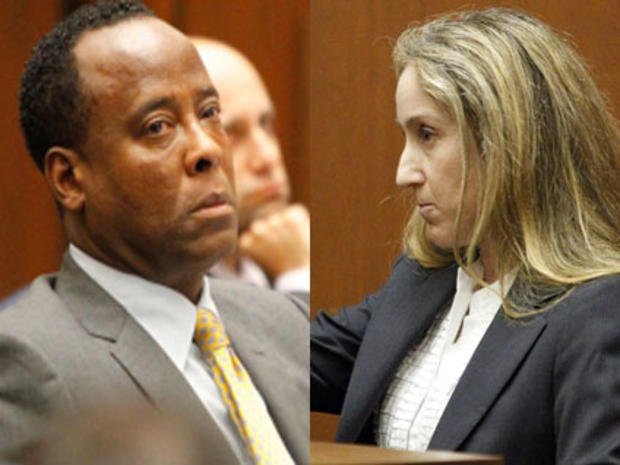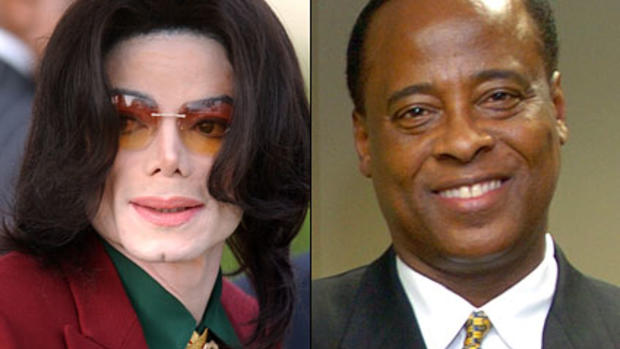ER physician: Michael Jackson's doctor Conrad Murray never mentioned propofol
LOS ANGELES (CBS/AP) - An emergency room physician told jurors Monday that Michael Jackson's doctor, Conrad Murray, never mentioned that he had given the singer the powerful anesthetic propofol.
Pictures: Who's who in the trial of Dr. Conrad Murray
Pictures: Michael Jackson's Doctor Trial
Video: Dr. Conrad Murray manslaughter trial begins
Dr. Richelle Cooper related her conversations with Murray on the day Jackson died, telling jurors that he only told her that he had given the singer the sedative lorazepam.
Cooper resumed testifying Monday as Murray's involuntary manslaughter trial began its second week.
Murray, 58, has pleaded not guilty and his defense lawyers claim Jackson gave himself a fatal dose of sedatives and propofol, which is normally administered in hospital settings.
Authorities say Murray administered the fatal dose and acted recklessly by providing Jackson the drug as a sleep aid.
Cooper testified she never asked Murray to sign a death certificate because by the time he was brought to Ronald Reagan UCLA Medical Center, Jackson became her patient.
"Mr. Jackson was my patient and I didn't really have an explanation for why he was dead," she said.
Cooper has previously testified she gave paramedics permission to pronounce Jackson dead, but that Murray wanted resuscitation efforts to continue at the hospital. She has said the singer was "clinically dead" when he arrived at the emergency room, and more than an hour of efforts did nothing to improve his condition.
Cooper also told jurors about trying to speak to Jackson's children after he was pronounced dead at the hospital at 2:26 p.m. on June 25, 2009.
"They were crying," Cooper said. "They were fairly hysterical."
Cooper is the 12th witness prosecutors have called so far in the trial, which is expected to last five weeks.
Jackson loomed large throughout opening statements and testimony last week, with Deputy District Attorney David Walgren showing jurors a photo of a lifeless Jackson on a gurney and playing clips of his final performances assembled for the film "This Is It."
During opening statements, jurors also heard a never-before-heard recording of Jackson, rambling and slurring his words, which Walgren said was extracted from Murray's cell phone.
The physician's phone records are a central part of the prosecution case. Prosecutors intend to show records of Murray's phone calls and emails from the hours before Jackson's death to show that the doctor had other things on his mind - getting his $150,000 a month deal to serve as Jackson's personal physician approved, running his medical practices and fielding calls from mistresses.
During a preliminary hearing, prosecutors showed that Murray was engaged in three phone calls in the hour before he emerged from Jackson's bedroom and frantically told a chef to seek help.
One of Murray's former patients, Las Vegas salesman Robert Russell, detailed one of those calls for jurors last week. Russell praised Murray in testimony, crediting the doctor with saving his life, but said he had grown distant after going to work for Jackson.
Russell said he called the physician's office seeking answers about his care on the day Jackson died. Murray returned the message at 11:49 a.m., roughly 15 minutes before telling Jackson's chef to call security and asking to speak to Jackson's eldest son, Prince.
Complete coverage of the Michael Jackson - Dr. Conrad Murray case on CBS News
